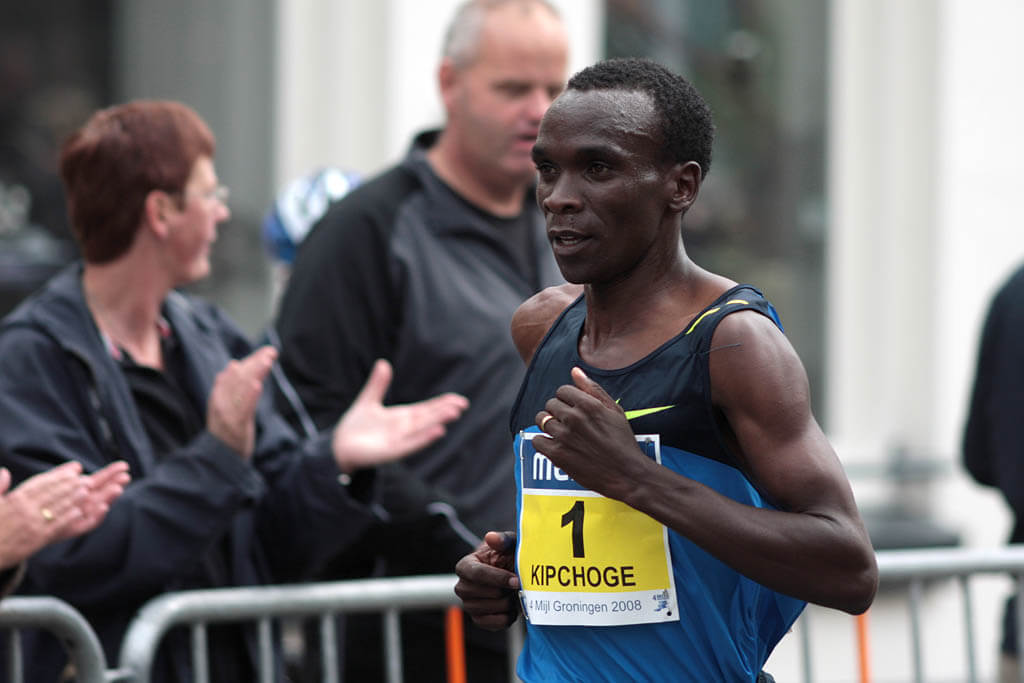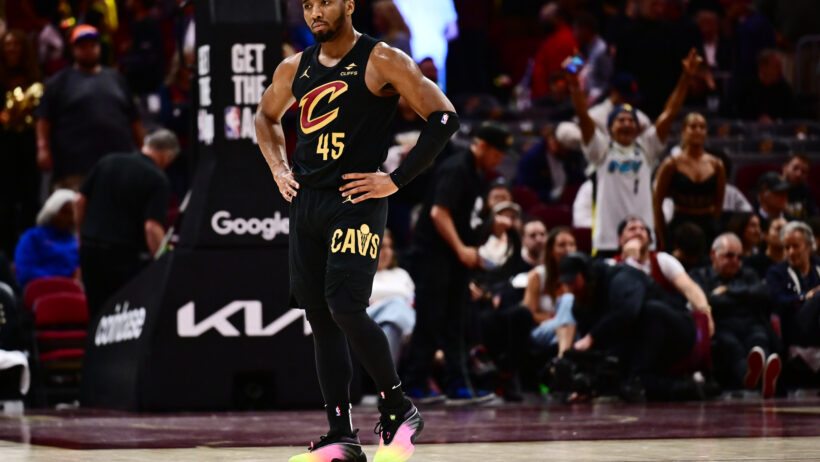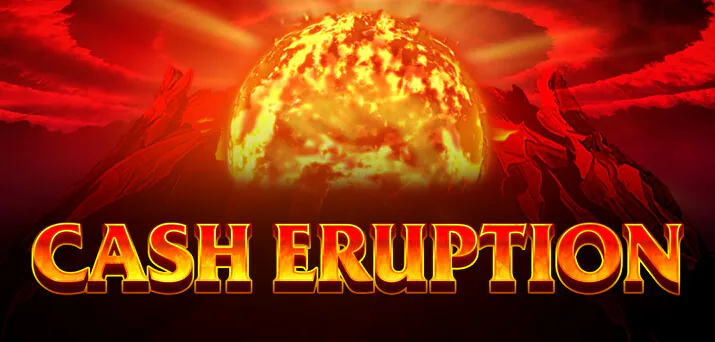Eliud Kipchoge Breaks Marathon World Record: By the Numbers
By Alex Kilpatrick in News
Updated: October 9, 2018 at 9:30 am EDTPublished:

- Eliud Kipchoge broke the Marathon World record in a time that’s hard to describe
- Our job is to describe sports things, though, so we have to give it a shot
- I don’t think Malcolm Gladwell can maintain this pace for a mile
Taking a bit of a break from strict sports betting content, we’ve decided to turn SportsBettingDime in the direction of an achievement we’re having trouble reckoning with: Eliud Kipchoge’s marathon.
Eliud Kipchoge Breaks Marathon World Record
If you didn’t hear, Kenyan marathon legend Eliud Kipchoge broke the marathon world record last weekend at the Berlin Marathon. Here’s a quick video, in which he runs away from the fastest marathon field in the world:

It’s a huge day for marathoning, and the numbers around it are kind of crazy. Kipchoge’s time only gets more impressive the more you think about it, so let’s do just that.
How fast is 2:01:39?
Briefly, it’s crazy fast.
Kipchoge averaged a 4:38 mile on his run, and if you can run one 4:38 mile, please send a video to us on twitter and we’ll get you a free bet or something.
Interestingly, it’s probably faster than Malcolm Gladwell can run, so instead of challenging 270-pound public school administrators to beat him in the mile, he should try and top this.
In fact, it helps to scale that down, and see how long you could hang with Kipchoge. Here’s what that pace works out to, on some smaller distances:
| Distance | Kipchoge’s Pace |
|---|---|
| 100m | 17.30 |
| 200m | 34.60 |
| 400m | 69.19 |
| 800m | 2:18.39 |
| 1km | 2:52.98 |
| 1.5km | 4:19.47 |
Most athletic men can run a 17-second 100m. A 34-second 200 is starting to be a stretch, a 69-second 400 is mildly gut-busting, and from there you’re looking at some dedicated training in order to maintain that pace.
That’s all in comparison to the average runner. It’s when you start comparing Kipchoge’s pace to other elite marathoners that things get crazy.
The previous marathon world record was run by Dennis Kimetto at the 2014 Berlin Marathon. He ran 2:02:57, improving on Wilson Kipsang’s time of 2:03:23 at the 2013 Berlin Marathon.*
Here’s two stats that really impress the scale of Kipchoge’s achievement:
- The last time the Marathon World Record was improved by this much (1 minute, 18 seconds) was in 1967
- Kipchoge was 3 seconds per mile faster than the previous world record.
If you improved your pace on your morning run by three seconds, you’d be within your rights to pat yourself on the back. Kipchoge did that to the world record. Even as compared to other record breaking performances, Kipchoge’s stands out.
If you’re noticing a pattern, yes, the Berlin Marathon is the place to run a world record marathon. The last seven world records at the distance have been set there, stretching back to Paul Tergat in 2003.
Is it the Shoes?
The first question you’re going to hear is about the shoes Kipchoge wore.
Specifically, the Nike Zoom Vaporfly 4%, which Nike developed for their no-holds-barred attempt at the 2-hour marathon. Those shoes claim to improve a runner’s efficiency by 4%, which would account for more than the difference between Kipchoge’s time and Kimetto’s.
Here’s a video about Nike’s completely lawless attempt at breaking two hours:

Alright, you might say, but that 4% improvement number comes from Nike, and Nike’s in the business of selling shoes. You can’t trust Nike!
And, sure, that’s a valid point. You can’t trust Nike, but you can (sort of) trust the New York Times, and you can (sort of) trust Strava. The NYT dug into the Strava data of marathoners, they found that the Vaporfly’s did make about a 1% difference in marathon times.
And yes, when you plug that 1% into Dennis Kimetto’s time, you do see something very similar to Kipchoge’s time.
So, was it the shoes? Answer: Maybe!
Is a 2-hour Marathon Possible?
The question on everyone’s mind: is a 1:59:xx marathon even possible?
There’s a couple ways to think about this question. Firstly, you can think that human performance is without limits, and that one day, eventually, someone will come along and smash the two-hour barrier, as well as every other barrier. The second way is to think that human performance is asymptotic, which means that there is a limit and that people like Eliud Kipchoge keep nudging us closer and closer to it.
I’m more prone to the second approach, because I don’t believe a one-hour marathon is possible. The limit has to exist somewhere, but where is it?
In the literature, as always. An anesthesiologist* at the Mayo Clinic, Michael Joyner, wrote a paper examining exactly this question in 1991. He estimated that an athlete with a VO2max of 84 mL/kg/min and a threshold pace of 85% (both high, but probably achievable) could run a 1:57:58 if they were exceptionally efficient. That’s before the shoes, and leaves enough time for this hypothetical runner to listen to Blur’s “Song 2.”
*This is, of course, not what anesthesiology is about, but having met several gas-passers, I can report that it’s best to keep them occupied.

Golf, Tennis & College Football Writer; Jr. Editor
Alex studied political science in university but spent most of that time watching college football. He covered sports betting for SBD from 2017-2019. Avid tennis player, golf nut, and motorsports nerd.



